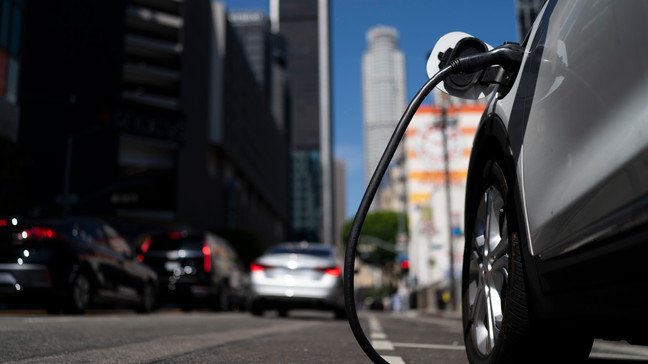Interest in electric vehicles (EVs) among American drivers has dropped to just 16%, the lowest level recorded in AAA’s annual surveys since 2019.
Key reasons for this decline include steep upfront costs, limited charging infrastructure, and worries about the suitability of EVs for long-distance travel. As a result, hybrid and plug-in hybrid vehicles are becoming more popular as practical alternatives.
According to AAA’s latest survey, only 16% of U.S. adults say they are “very likely” or “likely” to purchase an EV as their next car, down from 25% in 2022 when high gasoline prices encouraged more consumers to consider electric options.
This year, the percentage of people who said they would be “unlikely” or “very unlikely” to buy an EV rose to 63%, compared to 51% last year.
“While the automotive industry is focused on long-term electrification and expanding model options, consumer hesitation persists,” said Greg Brannon, AAA’s director of automotive engineering.
The survey highlighted high battery maintenance costs (62%) and purchase prices (59%) as significant barriers.
Other concerns included the perceived unsuitability of EVs for long trips (57%), a lack of accessible public charging stations (56%), and the fear of running out of charge while driving (55%).
Additional obstacles for those reluctant to buy an EV include safety worries (31%), challenges with home charging installations (27%), and 12% who are concerned about potential cuts to tax credits and rebates.
Despite the challenges, 77% of those likely to buy an EV cited savings on gasoline as their main motivation. This spring, gasoline prices hit their lowest level in four years, contributing to a surge in demand during the Memorial Day weekend.
Uncertainty about EV purchase incentives has also influenced drivers’ reluctance. Interest in tax credits and rebates has plummeted from 60% last year to 39% this year, according to the AAA survey.
Moreover, fewer Americans believe that most passenger cars will be electric within the next decade. The percentage of drivers who think most cars will be EVs has dropped from 40% in 2022 to just 23% this year.
Despite an increase in the availability of EV models, with many traditional automakers competing with Tesla, American consumers remain cautious about making the switch.
Public perception of the future of EVs is uncertain, even with over 75 new models introduced in the past four years.
For many, hybrid and plug-in hybrid vehicles offer a more appealing option, blending the benefits of traditional combustion engines with electric power, reducing range anxiety while providing an eco-friendly alternative.

